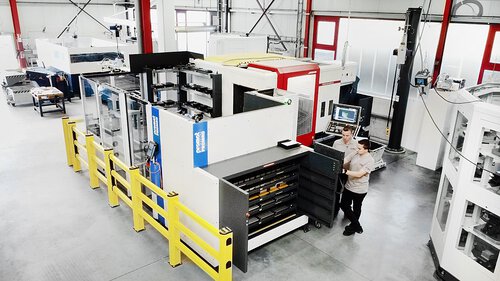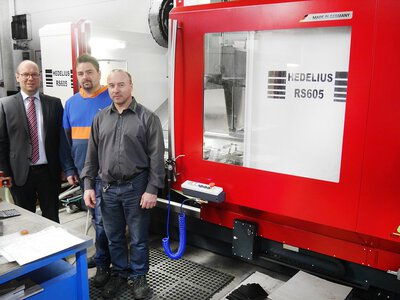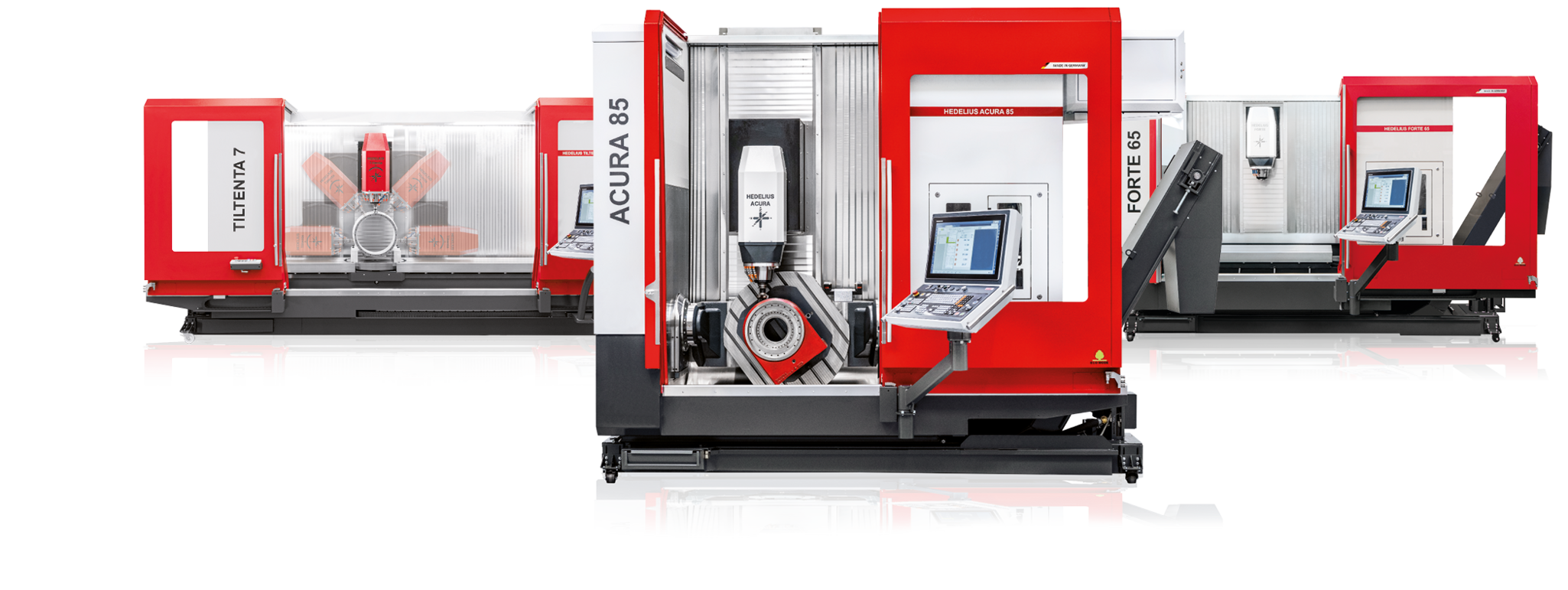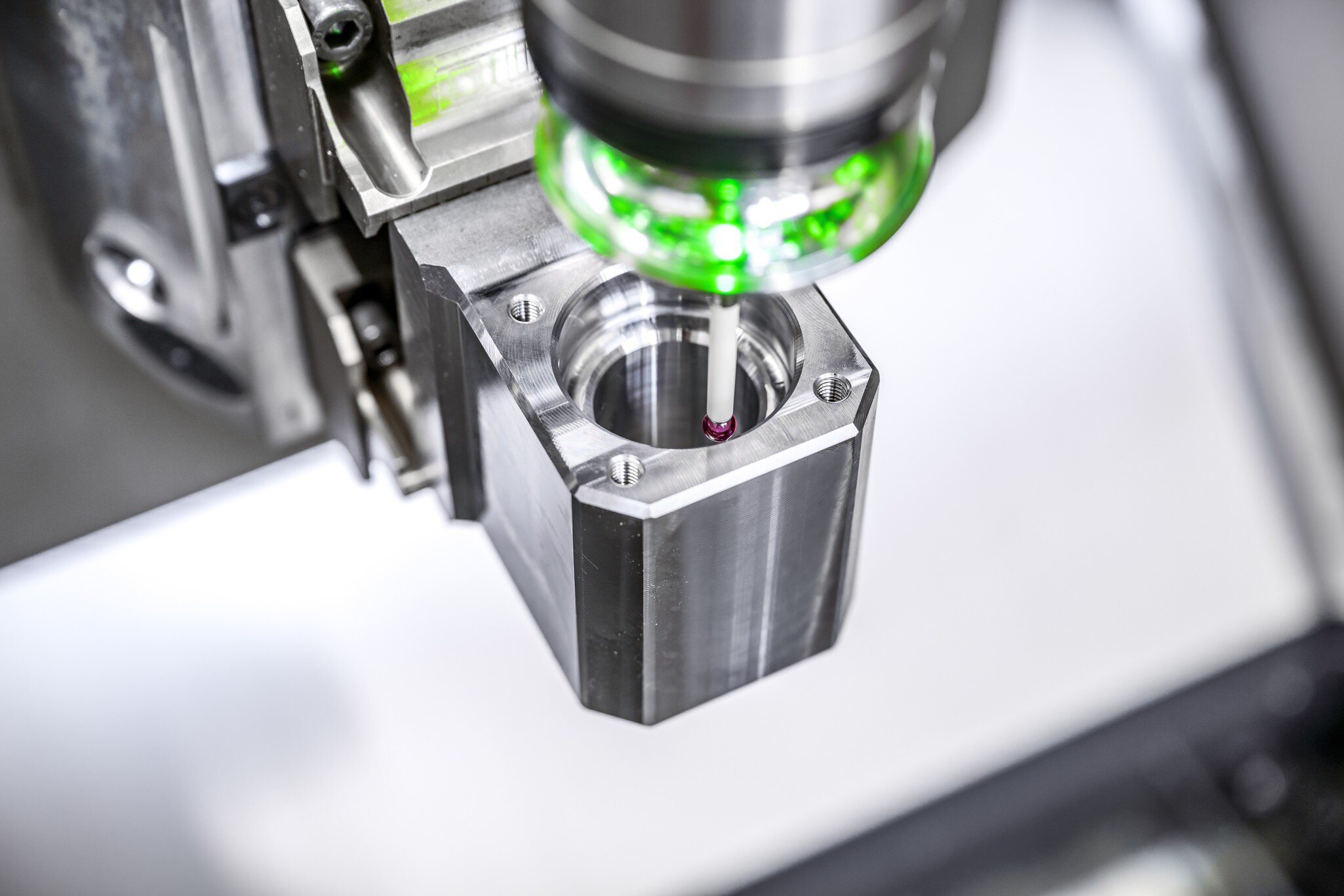BL-Lasertechnik GmbH | RS 605 K20, RS 605 K, C 80-2300
Field of application: Contract manufacturing | Company headquarters: Neuschönau, Germany | Employees: 90
BL-Lasertechnik GmbH has successfully made a name for itself in the highly competitive sheet metal processing market. By expanding its value chain to include the milling range, the company is on course for growth and currently employs 90 people.
"Today, we also accept orders independently of sheet metal processing," says BL managing director and owner Max Bauer. He is describing the current state of the development process from sheet metal processing to a diversified metalworking company. After the company was founded in 2008, the initial focus was on flexible laser cutting and bending of steel plates up to 30 mm thick. Other technologies were steadily added. On the one hand, because customers wanted more and more added value from a single source. Secondly, because the competitive pressure in sheet metal processing is very high. "Pure sheet metal processing has become a cut-throat market, while at the same time more and more customers want a finished product from a single source; pure laser or bending parts are less and less in demand," says Managing Director Bauer.
"Technologically always one step ahead."
BL-Lasertechnik GmbH has opened up to these challenges. Over the years, the company has grown in line with customer requirements and has become increasingly broadly installed. Programming, laser cutting, bending, edging, milling and welding are now also part of the value chain. Today, the medium-sized company employs 90 people, who mainly produce for national but also international customers from the agricultural machinery, electrical and medical technology sectors. The company mainly produces single parts and small series. "We are highly flexible in production. We can produce a part for our customers within a few hours if necessary," says Technical Manager Maximilian Scharringer, describing the situation in production. And owner Bauer adds: "We always try to be one step ahead technologically. We do what not everyone can do." Quality in the machinery is therefore important. For this reason, the company invests regularly. Among other things, BL has a modern TRUMPF fibre laser and a high-speed bending cell for sheet metal processing. A 5-axis machining centre from HEDELIUS was recently purchased for the milling range, where a total of three machines from the North German manufacturer are in use.
Significantly more flexible with HEDELIUS.
"The milling sector has become very important for our company's growth. Thirty per cent of our turnover is generated by milling. Every fourth to fifth laser part is then processed on a milling machine," says Bauer. This is a rapid development, considering that the first milling machine was put into operation in 2015: a C80 2300 3-axis machining centre from HEDELIUS. "Our customers have increasingly requested the machining of assemblies, which is why we decided to take the step into milling," says Technical Manager Scharringer. The C80 can be used to machine workpieces with an X travel path of up to 2340 mm. At BL, these include larger components of welded assemblies. However, as smaller complex parts also often have to be manufactured, two 5-axis machining centres were purchased in 2016 and 2017. The RS 605 K and RS 605 K20 from the RotaSwing series from HEDELIUS have a fixed machine table and a rotating/swivelling table. The slightly smaller 605 K offers an X travel path of 580 mm on the fixed machine table and 520 mm on the rotary swivelling table, while the 605 K20 offers 1330 mm and 620 mm of X travel path respectively. "Thanks to the machine concept with a fixed machine table and rotating/swivelling table, we can machine many small parts without having to reclamp frequently. The 5-axis machining centres have also made us much more flexible," says Scharringer, describing one reason for purchasing the HEDELIUS machines.
More precise than lasers.
Around 1000 tonnes of material are processed by the medium-sized company in Neuschönau every year. This is mainly aluminium, but also steel, non-ferrous metals and plastic. "Some customers demand accuracies that can no longer be achieved with a laser. The final accuracy is then achieved on a milling machine," says Max Bauer. The lead times of the workpieces vary greatly: processing can take anywhere from a few minutes to four hours. As customers often need parts at very short notice, not only tooling times but also machine availability play a major role. "Our machining centres have to run reliably, and they do," Scharringer makes clear. "We haven't had any breakdowns so far."
Convinced by "Made in Germany".
After a good two years of practical experience with HEDELIUS machining centres, those responsible at BL-Lasertechnik feel that their investment decision, which was based not least on a convincing price/performance ratio, has been confirmed. "The machines have a well thought-out concept and good basic technical equipment. Our operators appreciate the HEDELIUS principle of 'focussing on the user'. The machines are easy to close and the doors are smooth-running yet stable," summarises Scharringer. "You can simply rely on quality 'Made in Germany'. And we are also completely satisfied with the service from HEDELIUS, there is nothing to complain about."
More testimonials.

With around 60 employees at its Dillenburg site in Hesse, SIBA Metallverarbeitungs GmbH has been a reliable partner for a wide range of industries for over 60 years. A company that is so comprehensively installed must be able to act highly flexibly in production. This is why SIBA has relied on HEDELIUS machining centres for many years. The company currently relies on two automated systems that ensure maximum precision, unmanned running times and short reaction times: the ACURA 65 EL with PROMOT automation and the ACURA 65 MARATHON with MARATHON SR422 pallet magazine.

Thanks to the TILTENTA 11- 2600, S&S Schliess- und Sicherungssyteme GmbH in Mühlhausen, Thuringia can now produce even more time-efficiently. Thanks to the generous work area, the integrated swivelling spindle concept and high-performance 5-axis complete processing, one clamping is sufficient for S&S to process complex components completely with the TILTENTA 11- 2600.

Heidkamp Metallbearbeitung in Hüllhorst** relies on maximum flexibility, quality and adherence to deadlines in the production of milled parts. The 5-axis machining centre ACURA 65 EL from HEDELIUS, combined with a large tool store, pallet pool and GRESSEL centric clamps, ensures short tooling times, automated individual and small series production and reliable processes, even with complex components and tight delivery deadlines.


















































































































































